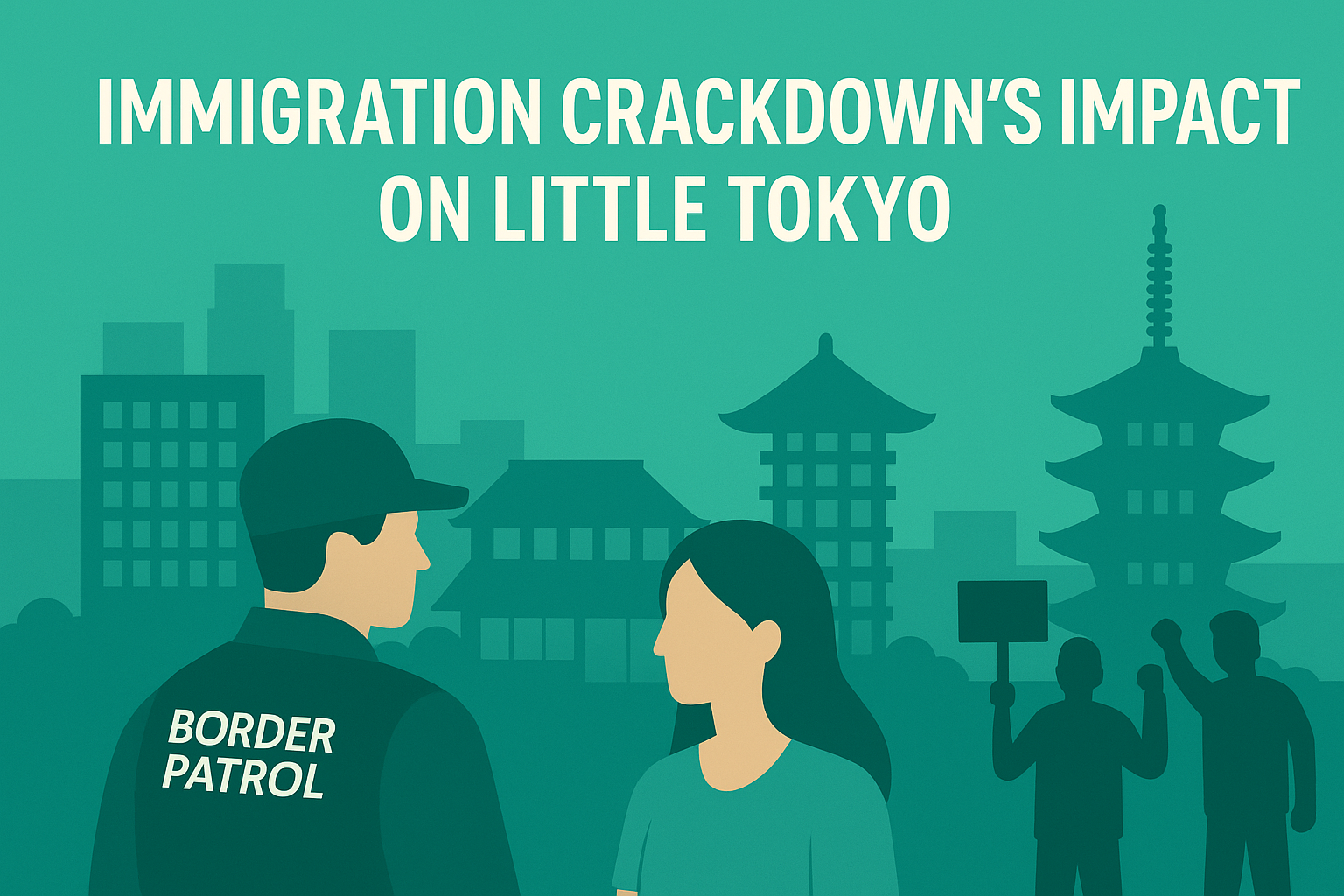Date: August 2025
Category: Immigration Policy / Urban Impact / Civil Rights
1. Executive Summary
Since the reimplementation of aggressive immigration policies by the Trump administration in 2025, Little Tokyo in downtown Los Angeles has become a symbolic flashpoint. Mass ICE raids, protests, and federal military deployments have deeply shaken the neighborhood’s economic stability, legal environment, and community cohesion. This report examines the consequences of these events and how local actors—including the Japanese-American community—are responding.
2. Background: Why Little Tokyo?
Little Tokyo, home to one of the oldest Japanese-American communities in the United States, is located in the heart of downtown Los Angeles. It is surrounded by immigrant-rich neighborhoods and remains a cultural and commercial hub for Japanese food, art, and heritage. Due to its visibility and proximity to ICE operations in the downtown area, it has become both a logistical and symbolic target in recent immigration crackdowns.
3. Key Events
📍 ICE Raids and Federal Troop Deployment
- In June 2025, ICE operations intensified across central Los Angeles, prompting widespread protests.
- Little Tokyo was directly affected by demonstrations, vandalism, and curfews, leading to significant damage to local businesses.
- Federal troops were dispatched to “restore order,” prompting fears reminiscent of martial law and historical internment trauma.
📍 Business Losses and Public Fear
- Dozens of local shops and restaurants—many run by immigrants or their descendants—experienced looting or temporary closure.
- Economic losses spiked, with restaurant foot traffic dropping by more than 60% in some areas.
- Residents, especially those with undocumented status or DACA protections, reported fear of leaving their homes.
4. Community Response
🏛 Civic Organizations and Museums
- The Japanese American National Museum and Little Tokyo Service Center (LTSC) organized “Know Your Rights” legal workshops in multiple languages.
- Peaceful clean-up efforts were led by community members after protests, symbolizing civic pride and resilience.
- Public events were held denouncing the use of the “Alien Enemies Act” and drawing parallels to WWII internment of Japanese Americans.
🧑⚖️ Legal Advocacy
- The 9th Circuit Court of Appeals upheld a legal injunction blocking indiscriminate ICE arrests in Los Angeles.
- The LA County Board advanced legislation to prohibit the use of undercover officers without identification in immigration enforcement.
5. Broader Implications
| Category | Implication |
|---|---|
| Economic | Sharp decline in tourism and local consumption; commercial instability |
| Social | Heightened racial and ethnic tensions; erosion of trust in institutions |
| Legal | Conflicts between federal enforcement and local sanctuary policies |
| Historical Memory | Revival of wartime trauma among Japanese-Americans; increased political activism |
6. Conclusion
Little Tokyo’s recent experiences highlight the collateral damage caused by broad-brush immigration enforcement. As the Trump administration continues to leverage immigration as a political tool, the neighborhood serves as a vivid reminder of how federal policy can fracture local communities, particularly those with deep immigrant histories.
The resilience of the Little Tokyo community, however, is equally notable—demonstrated through mutual aid, civic activism, and legal resistance. Its role as a moral compass and historical conscience in this debate is more vital than ever.


